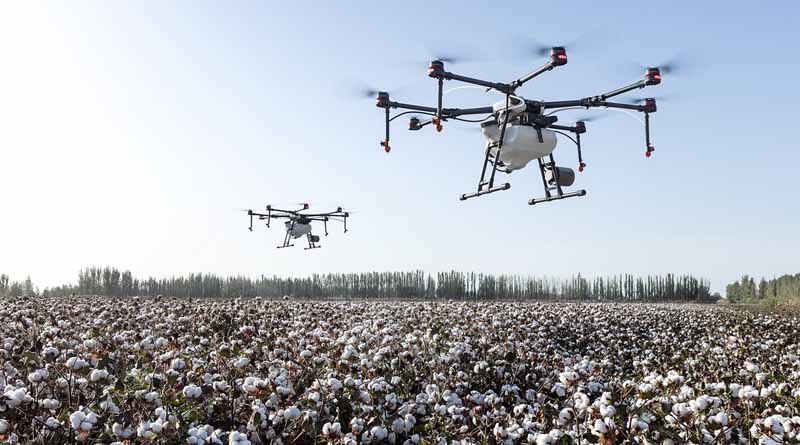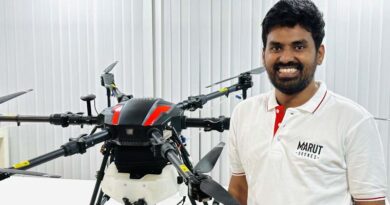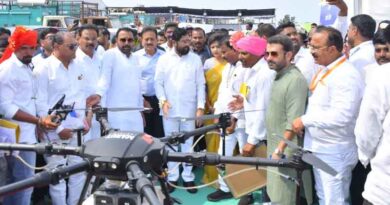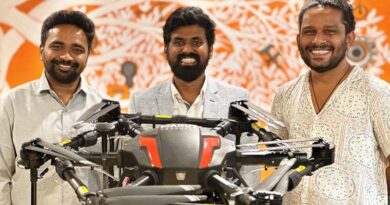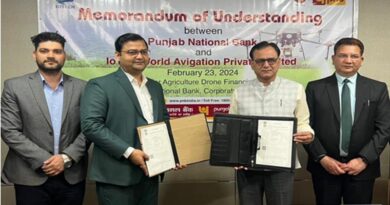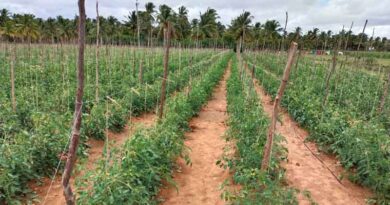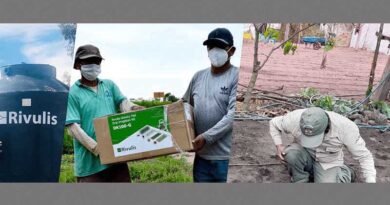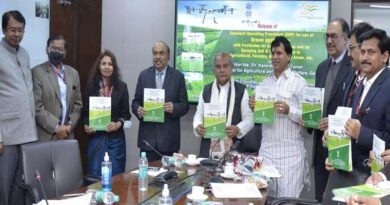Sky Guardians: Drones Safeguarding Earth for a Sustainable Tomorrow
Guest Author: Prem Kumar Vislawath, Founder and CEO, Marut Drones
22 April 2024, New Delhi: As we celebrate World Earth Day, it’s essential to recognize the pivotal role of drones in shaping the future of agriculture. With the world diverging towards high-tech agribusiness and smart farming practices, drones emerge as the champions for addressing complex challenges such as climate change, water scarcity, declining soil health, fluctuating commodity prices, and rising input prices.
Traditional pesticide application methods, employing manual spraying equipment, have long been recognized for their inefficiency and detrimental effects on the environment. A mere 20-30% effectiveness in pest control leaves a staggering 70-80% of applied pesticides wandering into non-target areas, causing alarming pollution in soil, water, and air. However, a beacon of hope emerges in the form of innovative UAV-based aerial spraying, implying a new era in sustainable farming practices.
Conventional methods contribute significantly to environmental pollution and compromise crop quality due to excessive run-off, leaching, evaporation, and drift. The need for optimizing pesticide delivery becomes evident to enhance efficacy while minimizing ecological risks associated with both exo-drift downwind and endo-drift within treated fields.
In recent years, agricultural technology has witnessed a transformative shift with the advent of Drone-based aerial spraying. This cutting-edge approach boasts a myriad of benefits, including high pesticide use efficiency, reduced labor costs, time and energy savings, quick response time, vast and uniform coverage, and environmental safety.
One of the most significant advantages of drone-based spraying is the minimal impact on the field. Unlike traditional methods, where pesticide residues often linger in soil and grains, the use of drones ensures no detection of insecticide residues like chlorantraniliprole 18.5 SC and trifloxystrobin 50 (75 WG) in the soil and grain, particularly in rice crops.
Drone-based spraying extends beyond protecting crops, acting as a safeguard for vital ecosystem members. Among these beneficiaries are coccinellids, commonly known as ladybugs, serving as natural predators that prey on harmful pests threatening crops. Spiders, another crucial element, contribute to pest control, aiding in maintaining a delicate ecological balance. Mirid bugs, with their diverse ecological functions, assist in pest control and promote soil health. Ultimately, protecting these beneficial creatures not only benefits immediate crops but also enhances the overall ecological resilience of the agricultural landscape.
Comparing drone spraying techniques to traditional knapsack spray, studies indicate a remarkable 75%-time savings and a substantial 21% improvement in crop yield. These statistics underscore the pivotal role that drone technology plays in optimizing resource utilization and enhancing overall agricultural productivity.
Beyond the environmental benefits, the adoption of drones in agriculture contributes to the improvement of farmers’ lives. The reduced association with pesticides, facilitated by drone technology, not only ensures a healthier work environment but also addresses concerns related to farmers’ health.
Drones, unlike traditional manual power sprayers, cover large field blocks without causing soil compaction or damage to the physical structure. This feature is crucial in preserving the integrity of soil. Moreover, drones prove to be highly adaptable in navigating small, complex field plots, a characteristic beneficial for India’s diversified crops and specialty crops like tea, coffee, and orchards cultivated on undulated terrain and steep slopes.
The role of drones extends beyond pest control. They can be deployed extensively for crop health monitoring, soil health assessment, and improving resource use efficiency. This multifunctional aspect positions drones as indispensable tools for modern, tech-savvy farmers.
The adoption of UAV-based aerial spraying in agriculture signifies a fundamental transition towards sustainable practices, particularly from the perspective of soil health. Drones emerge as essential partners in advancing environmental conservation, enhancing efficiency, and boosting yields. They are not merely technological wonders but play a pivotal role in steering agriculture toward a greener and more sustainable future.
Also Read: UPL receives ‘Well-Known Trademark’ by the Indian Trademark Registry
(For Latest Agriculture News & Updates, follow Krishak Jagat on Google News)

